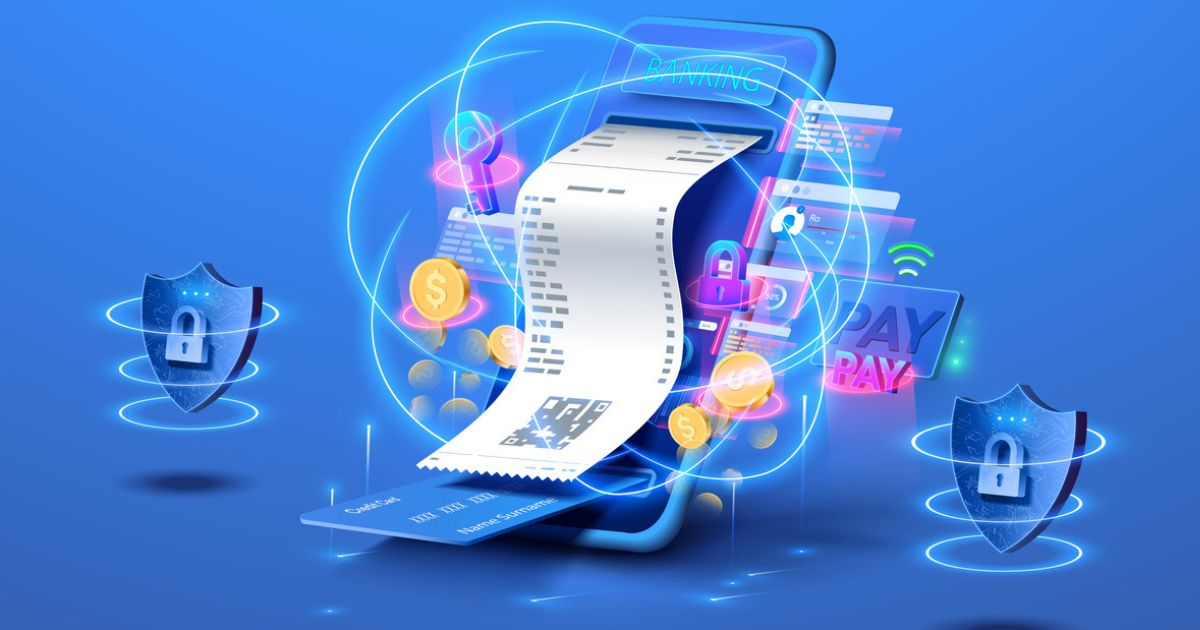
| October 30th, 2023 |
The Vital Role of Payment Gateway in Online Transactions!
In today’s digital age, where online transactions have become a routine part of our lives, ensuring financial data security is paramount. Whether you’re shopping online, subscribing to a service, or making payments to vendors, the role of payment gateway in securing these transactions cannot be overstated. In this article, we’ll look at what payment gateways are, how they work, and why they are essential for businesses and customers in facilitating secure online transactions.
Understanding Payment Gateways:
A payment gateway is a technology solution that facilitates the secure data transfer between a customer’s web browser or mobile device and the merchant’s website or point of sale – POS system. It plays a crucial role in processing electronic transactions, ensuring that sensitive payment information is encrypted and securely transmitted between the customer, merchant, and financial institution.
Here’s how a payment gateway typically works.
- Customer Initiates Transaction: The process begins when a customer initiates an online transaction. This could be a purchase from an e-commerce website, a bill payment, or any other type of online payment.
- Data Encryption: When the customer enters their payment information, such as credit card details, the payment gateway encrypts this data. Encryption converts the information into a secure code, making it unreadable to unauthorized parties.
- Transmission to Merchant: The encrypted data is then transmitted from the customer’s device to the merchant’s website or POS system via a secure connection.
- Authorization Request: The merchant’s system forwards the payment data to the payment gateway, which sends an authorization request to the customer’s bank or card-issuing institution.
- Transaction Approval: The customer’s bank or card issuer verifies the transaction details, checking for available funds and ensuring the transaction is legitimate. If approved, the bank sends an authorization code back through the payment gateway.
- Transaction Completion: The payment gateway receives the authorization code and forwards it to the merchant’s system, confirming that the transaction is approved and can proceed.
- Funds Transfer: At this point, the funds are transferred from the customer’s account to the merchant account.
- Transaction Confirmation: The merchant’s system generates a transaction confirmation for the customer, indicating that the payment was successful. The customer receives this confirmation, completing the transaction.
Why Payment Gateways are Essential?
Payment gateways play a pivotal role in ensuring secure online transactions, and here’s why they are indispensable:
1. Data Encryption
Payment gateways use advanced encryption protocols to protect sensitive payment data during transmission. This encryption ensures that even if intercepted by malicious actors, the data remains indecipherable.
2. Fraud Prevention
Payment gateways incorporate security features and fraud detection tools to identify and prevent fraudulent transactions. Suspicious activity is flagged, helping businesses and financial institutions mitigate risks.
3. PCI DSS Compliance
Payment Card Industry Data Security Standard (PCI compliance), is a set of security standards that payment gateways adhere to. Compliance ensures that businesses meet rigorous security requirements when handling payment data.
4. Customer Trust
When customers see a trusted payment gateway logo during the checkout process, it instills confidence that their payment information is being handled securely. This trust is essential for businesses in building long-term customer relationships.
5. Streamlined Transactions
Payment gateways streamline the payment process, making it quick and convenient for customers. This leads to higher conversion rates for businesses, as customers are more likely to complete transactions.
6. Versatility
Payment gateways support various payment methods, including credit cards, debit cards, digital wallets, and bank transfers. This versatility accommodates diverse customer preferences.
Types of Payment Gateways:
Payment gateways come in different forms to meet the needs of various businesses and industries. The two primary categories of payment gateways are:
1. Hosted Payment Gateways
In a hosted payment gateway setup, customers are redirected to a secure payment page hosted by a third-party service provider. This provider manages the entire payment process, including data security and compliance. Hosted gateways are easy to set up and offer robust security but may redirect customers away from the merchant’s website during the payment process.
2. Integrated Payment Gateways
Integrated payment gateways are seamlessly integrated into the merchant’s website or point-of-sale system. Customers enter their payment information directly on the merchant’s platform, which provides a more seamless user experience. While integrated gateways offer greater control over the payment process, they also come with increased responsibility for security and compliance.
Best Practices for Secure Online Transactions:
To ensure secure online transactions, both businesses and customers should follow these best practices:
For Businesses:
- Choose a Reputable Payment Gateway: Select a payment gateway with a strong reputation for security and compliance.
- Maintain PCI DSS Compliance: Adhere to PCI DSS standards to protect customer payment data.
- Implement Multi-Factor Authentication: Enhance security by requiring multi-factor authentication for access to payment systems.
- Monitor for Fraud: Continuously monitor transactions for suspicious activity and implement automated fraud detection systems.
- Regular Security Audits: Conduct regular security audits and assessments to identify vulnerabilities.
For Customers:
- Use Trusted Websites: Shop on reputable websites and look for secure connections (https://) and trusted payment logos during checkout.
- Protect Personal Information: Safeguard personal and payment information. Be cautious about sharing sensitive data.
- Enable Two-Factor Authentication: Whenever possible, enable two-factor authentication for added account security.
- Monitor Transactions: Regularly review bank and credit card statements for unauthorized transactions.
Conclusion:
Payment gateways are the unsung heroes of secure online transactions, ensuring that financial data remains protected and transactions are completed smoothly. As businesses and consumers continue to embrace the convenience of digital payments, the role of payment gateway in safeguarding our financial interactions will only become more crucial. By understanding how payment gateways work and following best practices for security, businesses can build trust with customers, and customers can enjoy the benefits of seamless and secure online transactions.
